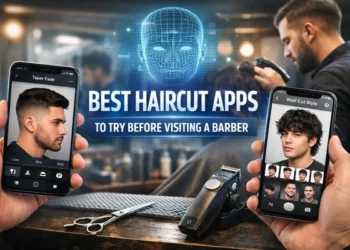Tech SEO tips for professionals often read like machine instructions. But here’s the twist: every line of code, every tag, every redirect—it’s all about humans. Yes, humans.
Google’s algorithm evolves, but its mission stays the same: to serve users. So, when you boost user experience, you boost your ranking. Period. These eight technical SEO strategies may seem dry at first glance, but collectively, they form the digital scaffolding that supports your visibility.
1. Speed Is a Silent Ranking Factor – Tame It or Be Left Behind
A 2-second delay in load time can increase bounce rates by over 100%. That’s not a typo. Users today expect lightning-fast pages—and Google does, too. Page speed isn’t just nice-to-have anymore; it’s a must. Use tools like Google PageSpeed Insights or Lighthouse. Compress your images. Strip bloated JavaScript. Prioritize above-the-fold content.
Now, here’s the kicker: improving speed does more than help SEO—it directly boosts user satisfaction. Visitors stay longer, bounce less, and click more. Result? Search engines take notice. They reward the sites that don’t make people wait. Fast equals functional, and functional wins.
2. Mobile-First is Not a Trend—It’s a Mandate
As of 2024, over 60% of all search traffic originates from mobile devices. So, if your site isn’t mobile-optimized, it’s not just inconvenient—it’s invisible. Google switched to mobile-first indexing years ago. That means the mobile version of your site is the main version in the eyes of search engines.
Your technical SEO strategies must start here. Use responsive design. Test your pages on various devices. Avoid intrusive interstitials. Ensure tap targets aren’t too close together. Why? Because clunky mobile UX kills both rankings and trust.
3. Crawlability: Let Google In, But Wisely
Search bots are like guests. You want to welcome them—but also guide them. Robots.txt and meta tags are your bouncers and hosts. Use them wisely.
Block what’s unnecessary (like admin pages), and allow what matters (your product pages, blog, and landing pages). But beware: overblocking can kill your indexability. Underblocking, on the other hand, floods Google with junk. It’s a delicate dance. Conduct regular crawl audits using Screaming Frog or Ahrefs. Look for crawl errors, orphan pages, and redirect loops. Fix them. Promptly.
Because if Google can’t crawl it, it can’t rank it.
4. Structured Data: Speak Google’s Language (Literally)
Schema markup sounds technical—and it is—but the benefits? Massive. Rich snippets, FAQs in search, star ratings, product availability, event details… all of these pop because of structured data.
Adding JSON-LD schema to your HTML helps Google better understand your content. That understanding often translates to visual enhancements in the SERPs. Visuals grab clicks. More clicks = higher CTR = a potential ranking boost.
For professionals, this is one of those tech SEO tips that separates amateurs from experts. It’s invisible to users, but loud to crawlers.
You can even go further and work with the interests of the target audience. For example, if your text is aimed at the UK, you can improve the visibility of the content and the number of clicks on it if you think like a Brit. How to do this? Use VPN servers UK and analyze local competitors, local search queries. More precise settings give huge advantages, but are more accessible to experts. Exactly the same can be done with other texts that attract users from certain regions well. In particular, VeePN has many VPN servers around the world, so the SEO specialist gets flexibility.
5. Fix Your Broken Links—They’re UX Landmines
404 errors don’t just frustrate users—they bleed SEO equity. Every broken internal link is a dead end, a dropped opportunity, a reason for someone to leave and not come back.
Use crawling tools to uncover 404s and 410s. Create 301 redirects where relevant. Or, better yet, update the link destinations. Broken outbound links? They hurt, too. If you’re sending users to non-existent resources, it reflects poorly on your brand.
This isn’t busywork. It’s quality control—and it tells Google that you care about the experience you’re offering.
6. HTTPS Is Not Optional—It’s Non-Negotiable
Still running HTTP? That’s not brave; that’s reckless. Google confirmed HTTPS as a ranking signal back in 2014. If for a while site administrators were just hoping for a miracle or that their users would use Chrome VPN, that’s no longer the case. It’s 2025—every user expects a secure connection.
More than 90% of page one results now use HTTPS. Beyond rankings, security impacts trust. A “Not Secure” warning in Chrome screams sketchy. Install an SSL certificate. Force HTTPS with server-side redirects. Update your canonical tags and internal links to reflect the change.
Security isn’t just about defense. It’s about perception—and perception drives engagement.
Further Reading: How to Use Affiliate Programs to Build Links and Improve Your SEO Efforts
7. Canonical Tags: End the Duplicate Content Confusion
Canonicalization sounds complex, but it’s a lifesaver. When you have multiple URLs with similar or identical content (think filters, categories, and session parameters), Google gets confused.
Without proper canonical tags, search engines might index the wrong version—or worse, penalize you for duplicate content. By declaring the “preferred” version, you consolidate SEO signals and avoid dilution.
Implement canonical tags in your head section. Audit them periodically. If you’re on an eCommerce platform with thousands of pages, this technical SEO strategy becomes mission-critical.
8. XML Sitemaps: The GPS for Crawlers
Imagine trying to explore a new city without a map. That’s how search engines feel without an XML sitemap. It’s your blueprint, your directory, your invitation to index.
Ensure your sitemap is clean—no broken URLs, no redirects, no parameterized duplicates. Submit it in Google Search Console. Update it dynamically if your content changes frequently. And always include your canonical URLs—not temporary or tracking-tagged versions.
Sitemaps don’t guarantee indexing, but they guide the bots. And better-guided bots equal better search visibility.
Read Also: Anchor Texts: How to Use Them to Improve SEO
Conclusion
Think of technical SEO as plumbing. Invisible when done right, a disaster when ignored.
So check your pipes. Tighten your code. And don’t just play the game—engineer your way to the top.









